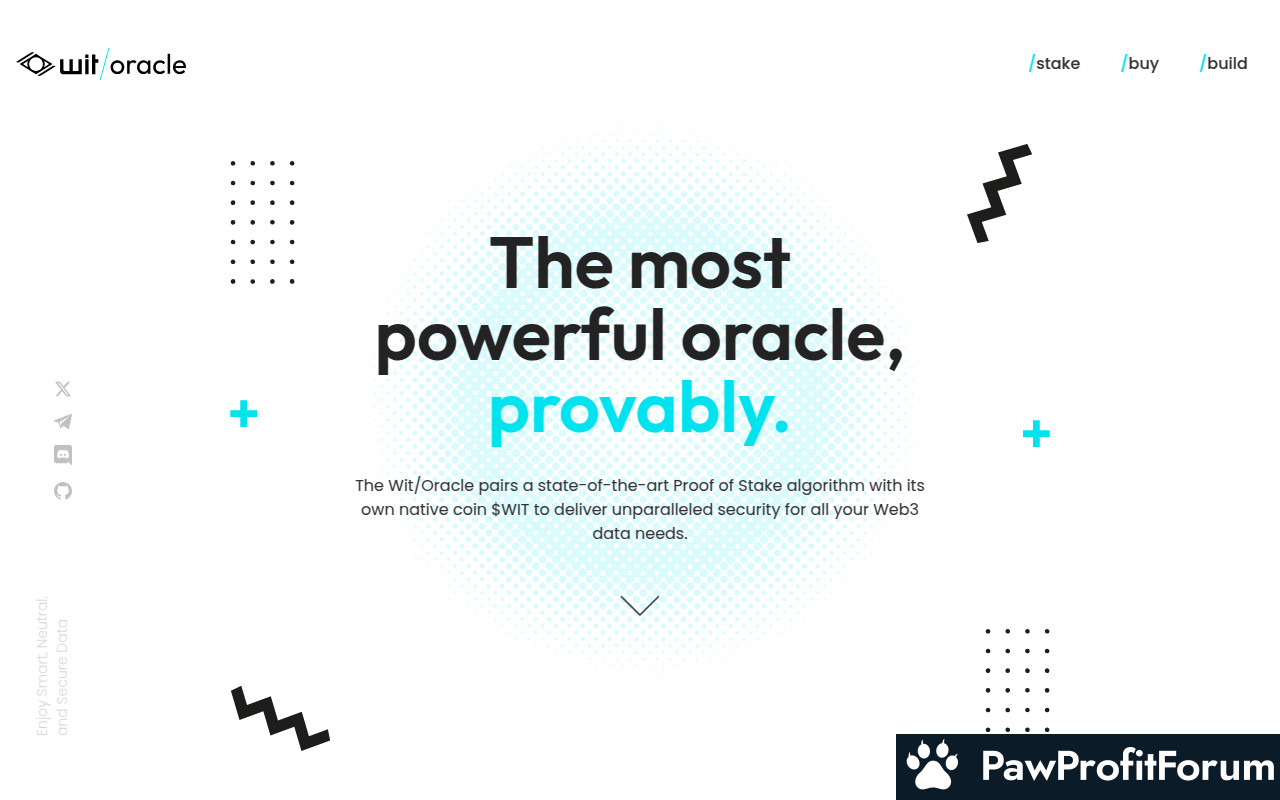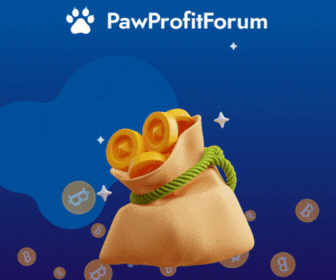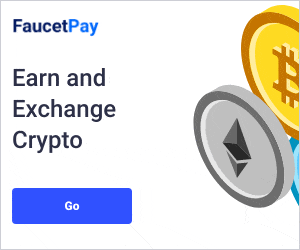Use cases
Witnet is specially designed for “autonomous” smart contracts — those that require a high degree of tamper resistance and shouldn’t leave space for manipulation.Witnet can power most DeFi primitives like price feeds, stable coins, derivatives, etc., as well as acting as a reliable source of randomness for creating uniqueness in NFTs.
Use cases
Witnet is specially designed for “autonomous” smart contracts — those that require a high degree of tamper resistance and shouldn’t leave space for manipulation.Witnet can power most DeFi primitives like price feeds, stable coins, derivatives, etc., as well as acting as a reliable source of randomness for creating uniqueness in NFTs.
Technology
Being based on its own blockchain, Witnet is connected to multiple smart contract platforms through the use of bridges.he Witnet blockchain is a single-purpose blockchain that has been built from scratch using the Rust programming language to address the particularities of the “oracle” use case (reliable and secure data providing).
Token utility
Gas fee: transactions on the Witnet blockchain require fees for occupying block space. Mining nodes earn WIT tokens for each block they get accepted by the network, as well as for including transactions into those blocks.Payment for service: queries sent to the Witnet oracle need to pay the nodes resolving the requests using the WIT token.
Staking: node operators need to stake WIT tokens in their nodes to increase their chance to mine blocks and to get data requests assigned for them to resolve and take fees from.
What is Witnet?
Witnet (WIT) stands out as a decentralized oracle solution designed to bridge the gap between blockchain smart contracts and real-world data. Unlike traditional oracles, Witnet emphasizes decentralization and security, ensuring that data fed into smart contracts is tamper-resistant and reliable. This makes it particularly suitable for autonomous smart contracts that demand high levels of integrity and resistance to manipulation.The protocol is blockchain-agnostic, meaning it can interact with multiple blockchain platforms through bridges, enhancing its versatility. Witnet's blockchain is purpose-built using the Rust programming language, focusing specifically on the oracle use case to provide secure and reliable data. This single-purpose blockchain is integral to its function, ensuring that data requests are handled with cryptoeconomic guarantees.
Witnet employs a Proof of Stake algorithm, where node operators stake WIT tokens to increase their chances of mining blocks and resolving data requests. These nodes earn WIT tokens as rewards for their services, including transaction fees and payments for resolving oracle queries. This staking mechanism not only secures the network but also incentivizes accurate data provision.
In the realm of decentralized finance (DeFi), Witnet is invaluable for powering price feeds, stablecoins, and derivatives. It also serves as a reliable source of randomness for NFTs, ensuring uniqueness and fairness. The Witnet protocol thus enables smart contracts to access a wide array of valuable data sets, unlocking their full potential in various applications.
What is the technology behind Witnet?
Witnet is a decentralized oracle protocol that connects smart contracts to external data sources, enabling them to access real-world information securely and reliably. Developed by Stampery, Witnet operates on its own blockchain, which is built from scratch using the Rust programming language. This blockchain is designed specifically to address the needs of the oracle use case, ensuring reliable and secure data provision.The Witnet blockchain is a single-purpose blockchain, meaning it is tailored to perform a specific function—providing data to smart contracts. This specialization allows it to offer strong cryptoeconomic guarantees, which are essential for maintaining the integrity and security of the data it provides. Nodes in the Witnet network are responsible for fetching, attesting, and delivering data to smart contracts, and they are incentivized to do so accurately through a system of rewards and penalties.
To prevent attacks from bad actors, Witnet employs a combination of cryptographic techniques and economic incentives. Nodes must stake WIT tokens to participate in the network, which means they have a financial interest in behaving honestly. If a node attempts to provide false data, it risks losing its staked tokens. This staking mechanism, combined with the decentralized nature of the network, makes it difficult for any single entity to manipulate the data.
Witnet is compatible with multiple blockchain platforms through the use of bridges, allowing it to serve a wide range of decentralized applications (dApps). This interoperability is crucial for the adoption of Witnet as a reliable oracle solution across different blockchain ecosystems. By providing secure and tamper-resistant data feeds, Witnet can power various DeFi primitives such as price feeds, stablecoins, and derivatives, as well as serve as a source of randomness for creating unique NFTs.
In terms of token utility, WIT tokens are used for several purposes within the Witnet ecosystem. Transactions on the Witnet blockchain require gas fees, which are paid in WIT tokens. Mining nodes earn WIT tokens for each block they successfully mine and for including transactions in those blocks. Additionally, queries sent to the Witnet oracle must pay nodes in WIT tokens for resolving the requests. This payment system ensures that nodes are compensated for their work and incentivizes them to provide accurate data.
The Witnet protocol also emphasizes decentralization and security, aligning with the principles of the Alliance of Decentralized Oracles (ADO). By prioritizing these aspects, Witnet ensures that smart contracts can access valuable data sets without the risk of manipulation. This makes Witnet particularly suitable for "autonomous" smart contracts that require a high degree of tamper resistance.
The combination of a purpose-built blockchain, strong cryptoeconomic guarantees, and interoperability with multiple platforms positions Witnet as a robust solution for decentralized data provision.
What are the real-world applications of Witnet?
Witnet (WIT) is a decentralized oracle network designed to provide reliable and secure data to smart contracts. This unique protocol enables smart contracts to access valuable data sets and ensures the information is delivered securely through strong cryptoeconomic guarantees.One of the primary real-world applications of Witnet is its use in decentralized finance (DeFi). Witnet can power various DeFi primitives, such as price feeds, stable coins, and derivatives. By providing accurate and tamper-resistant data, it helps maintain the integrity and functionality of these financial instruments. Additionally, Witnet serves as a reliable source of randomness, which is crucial for creating unique non-fungible tokens (NFTs).
Witnet's blockchain is built from scratch using the Rust programming language, specifically to address the needs of the oracle use case. This single-purpose blockchain connects to multiple smart contract platforms through bridges, allowing it to serve as an oracle solution across different blockchains. This blockchain agnosticism ensures that Witnet can be integrated into various ecosystems, enhancing its versatility and utility.
The Witnet network also plays a significant role in providing reliable data to smart contracts. By acting as an intermediary, it ensures that smart contracts can access real-world data without the risk of manipulation. This is particularly important for autonomous smart contracts that require a high degree of tamper resistance.
In terms of token utility, WIT tokens are used for several purposes within the Witnet ecosystem. Transactions on the Witnet blockchain require gas fees, which are paid in WIT tokens. Mining nodes earn WIT tokens for each block they get accepted by the network and for including transactions in those blocks. Additionally, queries sent to the Witnet oracle need to pay the nodes resolving the requests using WIT tokens. Node operators also stake WIT tokens to increase their chances of mining blocks and resolving data requests, thereby earning fees.
Witnet is part of the Alliance of Decentralized Oracles, which fosters collaboration and innovation among decentralized oracle projects. This alliance helps strengthen the community of developers, miners, and enthusiasts who support and contribute to the Witnet network.
What key events have there been for Witnet?
Witnet, a decentralized oracle network, has carved a niche in the blockchain ecosystem by enabling smart contracts to access real-world data securely. This capability is essential for decentralized finance (DeFi) applications, NFTs, and other blockchain-based innovations. The journey of Witnet has been marked by several pivotal events that have shaped its development and adoption.The launch of Witnet as a multichain decentralized oracle was a significant milestone. This launch allowed Witnet to become compatible with multiple blockchain platforms, enhancing its utility and reach. The protocol's ability to provide tamper-resistant data to smart contracts has made it a valuable tool for developers seeking to build reliable and secure decentralized applications.
In 2021, Witnet experienced continuous growth and real adoption, marked by several key developments. One notable event was the release of Witnet 1.6, which brought various improvements and new features to the protocol. This update was crucial in enhancing the performance and reliability of the Witnet network, making it more attractive to developers and users alike.
Another significant event in 2021 was the November community call. These community calls have been instrumental in keeping the Witnet community informed and engaged, providing updates on the project's progress and future plans. The active involvement of the community has been a driving force behind Witnet's ongoing development and success.
The launch of Witnet on the Scroll Mainnet was another critical event. This integration expanded Witnet's reach and demonstrated its compatibility with different blockchain environments. By connecting to multiple smart contract platforms through the use of bridges, Witnet has positioned itself as a versatile and essential component of the blockchain ecosystem.
Witnet's native coin, WIT, has also seen significant developments. It is available on several crypto exchanges, providing liquidity and accessibility to users. Additionally, WIT can be stored in various wallets, offering added security and convenience for holders. The token utility of WIT includes gas fees for transactions, payments for oracle services, and staking by node operators to increase their chances of mining blocks and resolving data requests.
The Witnet protocol's design, based on its own blockchain and built using the Rust programming language, addresses the specific needs of the oracle use case. This single-purpose blockchain ensures reliable and secure data provision, which is crucial for the integrity of smart contracts and DeFi applications. Witnet's ability to power price feeds, stablecoins, derivatives, and provide randomness for NFTs highlights its versatility and importance in the blockchain space.
These key events and developments have solidified Witnet's position as a leading decentralized oracle network, enabling smart contracts to realize their full potential by accessing valuable and secure data.
Who are the founders of Witnet?
Witnet (WIT) is a decentralized oracle network designed to provide smart contracts with access to real-world data. The founders of Witnet include Adan Crespo and Daniele Levi. Adan Crespo has a background in software engineering and blockchain technology, contributing significantly to the technical development of Witnet. Daniele Levi, with a strong background in entrepreneurship and technology, played a crucial role in the strategic and business aspects of the project. The Witnet Foundation and individual contributors also played essential roles in the creation and ongoing development of the protocol.| Website | witnet.io |
| Website | witnet.io/witnet-whitepaper.pdf |
| Socials | twitter.com/witnet_io |
| Socials | reddit.com/r/witnet |
| Socials | github.com/witnet/witnet-rust |
| Socials | discord.gg/witnet |
| Explorers | witnet.network |







